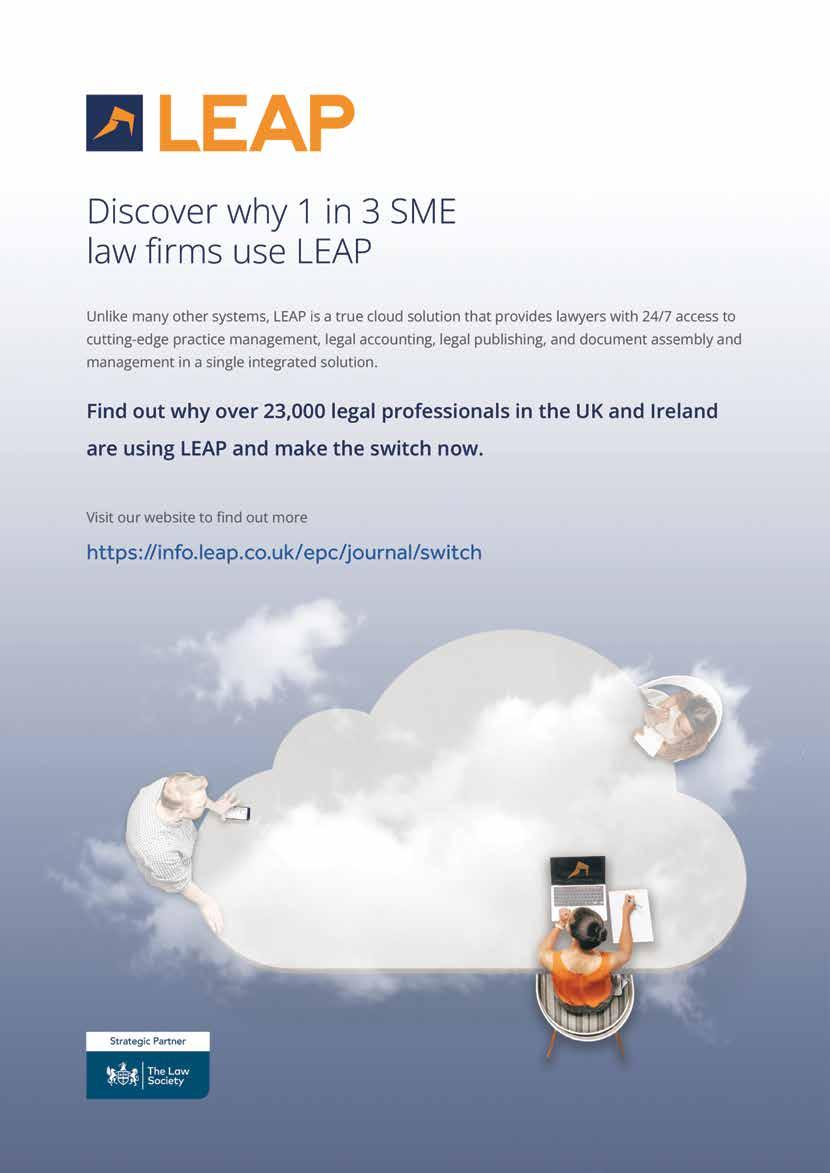











Very pleased to have chosen two charities ahead of the President’s Annual Dinner, and have a renewed focus on the charitable fundraising element of this event.
I am pleased to continue to support lawyers and promote mental health and wellbeing amongst the profession and wider. Accordingly, I have invited Ginny Idehen to attend the Dinner as one of the President’s Guest, CEO of Mid and North East Essex Mind.

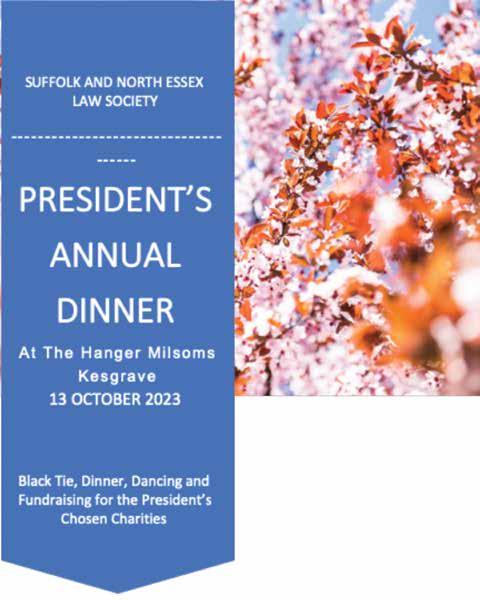
Mid and North East Essex Mind believe no one should have to face a mental health problem alone. Whether you’re stressed, depressed or in crisis, we’ll listen, give you support and advice and push for a better deal and respect for everyone experiencing a mental health problem. We are an independent local charity that specialises in supporting children, young people and adults who are experiencing mild to moderate mental health problems. We are here to support and empower people experiencing an emotional or mental health problem by building on their personal hopes and aspirations. This is achieved by identifying and responding to community needs in order to deliver an effective and efficient system of community based services. During the financial year 2022/2023 we provided 3064 therapeutic counselling sessions, we worked with 782 young people via our Mental Health Support Teams in schools and colleges, we supported 776 people via our Futures in Mind service and received over 4,808 referrals to our Crisis Support teams.
I am further pleased to support the Suffolk Law Centre, and Audrey Ludwig, Director of Legal Services will also be attending, alongside the High Sherriff of Suffolk, as our guests. The Suffolk Law Centre is based in Ipswich and provides legal advice, casework, support and information to empower the people of Suffolk, facilitating access to justice for all Suffolk residents, particularly the disadvantaged in our communitythe impoverished, disabled, illiterate, those from minority ethnic groups and migrant workers with limited English. Some clients receive advice at the point of contact or are signposted to more appropriate services.

They are a Registered Charity (No. 1176229) and rely on grants and donations to offer their services free of charge as a non-profit organisation. This year in particular, SNELS is proud to be working with and supporting the High Sherriff of Suffolk in seeking to safeguard the service, reputation and sustainability of this organisation.
This event is only made possible by the engagement of our Members and Support of Sponsors and other business. Thank you to our sponsors which include:
President
Amanda Timcke
Birketts
Ipswich
Tel: 01473 406215
Email: amanda-timcke@birketts.co.uk
Vice President
Louise Goodenough
Haywards Solicitors
Stowmarket
Tel: 01449 613631
Fax: 01449 613851
Email: louise.goodenough@haywards-solicitors.co.uk
Deputy Vice President
Benjamin Carver
John Fowlers
Colchester
Tel: 01206 576151
Email: bencarver@johnfowlers.co.uk
Honorary Secretary
Ivana Radovic
Birketts
Ipswich
Tel: 01473 921 716
Email: ivana-radovic@birketts.co.uk
Honorary Treasurer
Louise Cardwell
Ashtons Legal
Tel: 01473 261320
Email: louise.cardwell@ashtonslegal.co.uk

Honorary Council Members
Donna Taylor, Council Member for Suffolk
Nexa Law Limited
London
Tel: 020 7504 7071 – Extension 2127
Mob: 07859 896 640
Email: donna.taylor@nexa.law
Tony Fisher, Council Member for Essex
Fisher Jones Greenwood
Colchester
Tel. 01206 835231
Mob. 07904 086254
Email: tfisher@fjg.co.uk
PRO/PLO
Louise Goodenough
Haywards Solicitors
Stowmarket
Tel: 01449 613631
Fax: 01449 613851
Email: louise.goodenough@haywards-solicitors.co.uk
Education & Training Officer
Amanda Timcke
Birketts
Ipswich
Tel: 01473 406215
Email: amanda-timcke@birketts.co.uk
Mental health has been a hot topic in the legal sector in recent years, but a constant problem is how do we find the balance between meeting the demands of our roles, whilst managing our mental health?
Marie Dillion from Leading Minds ran a webinar exclusively for SNELS on 15 June to help us gain a deeper understanding of the risk factors, signs and symptoms and support strategies necessary to reduce the risk of burnout and mental health challenges such as anxiety and depression. Thank you to Ben Carver, our DVP for arranging this.
In keeping with this theme, SNELS have again this year supported Suffolk Law Centre’s Legal Walk in Ipswich, as without access to legal services, those who are the most vulnerable in society can suffer from mental health challenges also. We are also pleased to have supported and championed the Law Centres run by students (with practitioner support) at the University of Suffolk and the University of Essex.
Lawyers, no matter what area of law we specialise in, do good, and add value to our communities. SNELS is looking to work closer with voluntary organisations and Law Clinics in our communities and Universities, to celebrate both our hard work and our stories during Pro-Bono week, which commences 6 November.
In addition, you may have noticed our updated web page and LinkedIn media presence to augment our email distribution and X (formally twitter) news feeds. Your Council is looking at communicating more effectively to members and stakeholders. If you have any ideas please do share them by emailing: SNorthEssexLawSociety@birketts.co.uk.
Finally, members have brought to my attention the difficulties and lack of resources in this region to support lawyers returning to the profession, particularly following a career break. This particularly affects women who take time out for their families. I am pleased to have been able to bring this to the attention of TLS at Chancery Lane and helped to form a small focus group tasked with “Championing Women in Law”.
Amanda Timcke President, Suffolk & North Essex Law Society
Before proceeding to formal business Council observed a minute’s silence in memory of Sir Max Williams, President of the Law Society in 1982-83, who had died recently.
The President, Lubna Shuja, extended a particular welcome to two recently elected members, namely Amy Clowrey (Yorkshire and Humberside) and Matthew Gauntlett (Oxfordshire, Berkshire and Buckinghamshire). She also welcomed Amerdeep Somal, who observed the meeting as part of her induction as the next Board Chair of the Law Society.
The President announced with regret that Caroline Newman had tendered her resignation from Council and paid tribute to Caroline’s work on Council and EDIC. Nominations for Ms Newman’s Council seat of North East London had been launched. Nominations had also been opened for the Birmingham Council seat (the previous nominee had withdrawn).
Sara Chandler presented a report. Key points were:
1. The 100 years of Women Solicitors campaign had concluded with a virtual webinar. The 3- month campaign produced some of the top performing Law Society content of all time.
2. Mental health awareness week in May was marked through sharing content and stories on social media, in newsletters and other communication channels. They signposted to resources and support for individuals and for firms to create healthy workplaces.
3. EDIC supported an event bringing together neurodivergent people in the legal sector and allies for Neurodiversity Celebration Week in March.
4. The 2023 gender pay gap reporting deadline on 4 April was marked with a press release directing firms and organisations to supporting guidance materials.
5. A joint D&I forum with our in-house and large firm communities during Mental Health Awareness Week discussed creating healthy workplaces and support and resources available for firms and individuals. 28 in-house and private legal professionals from the largest law firms attended to hear from LawCare and the Mindful Business Charter before discussing the challenges facing the profession and how we can achieve change.
In response to Council members’ questions, it was reported that:
1. The Society was having close meetings with the SRA on the subject of the underperformance of ethnic minority candidates in the SQE.

2. Council members were encouraged to become more involved with the Disability Access Scheme by becoming sponsors or mentors and by encouraging uptake through their local law societies.
3. Consideration would be given to whether the Women in Law pledge should be widened into a more general anti-discrimination pledge.
Council unanimously resolved to appoint Catherine Pitt, Nina Sahu and Omar Madhloom as non- Council members of EDIC for three years with immediate effect.
The President, Lubna Shuja, gave a report. Key points were:
1. The President and the CEO, Ian Jeffery, had been among other Law Society members to participate in the recent Pride March in London in support of the LGBTQ+ community. They had also taken part in the London Legal Walk, which saw over 16,000 walkers, raising £860,000 to support frontline free legal advice agencies.
2. Lady Justice Sue Carr will become Lord Chief Justice in succession to Lord Chief Justice Burnett on 1 October. Council joined the President in sending Lady Justice Sue Carr the very best as the first female Lord Chief Justice and in wishing Lord Chief Justice Burnett a long and happy retirement.
3. The High Court had granted the Society permission to bring a judicial review challenge against the government, arguing that the government’s decision not to implement the 15% increase in criminal legal aid rates was irrational, lacked reasons, and was in breach of the constitutional right of access to justice. Permission was granted on all three grounds, thanks to the excellent work of the Law Society’s legal team.
4. The Society had also had an important influencing win on the Economic Crime Bill – after months of highlighting to Ministers and peers the importance of the proposed regulatory objective being implemented in a targeted and proportionate way, Lord Bellamy made a statement that any regulatory activity needed to be appropriately targeted, rather than a tick- box exercise. Thanks were due to the policy and public affairs teams for work on this.
5. The Lord Chancellor had announced that the government was not proceeding with the Bill of Rights Bill. The Law Society had been campaigning on this for a long time. We will continue to keep a close eye on any developments in this area.
6. The Society had recently welcomed the Chairman and Secretary of the Bar Council of India to 113 Chancery Lane, where we signed a joint Memorandum of Understanding on strengthening legal exchange, transnational legal practice, and friendly cooperation between our organisations. In addition (although not at the same time), a delegation from the Ghana Bar Association had been welcomed and collaboration had been discussed.
7. The President had attended IBA Bar Leaders Conference in Helsinki, where she spoke about improving the public image of the legal profession and promoted the work we are doing on Reframing Justice and 21st Century Justice. In June the President visited Paris to meet with members and speak at the Franco-British Law Society’s International Mediation Conference about (i) the way mediation works in England and Wales, and (ii) the value of properly conducted mediation.
8. The President had continued to meet members locally, visiting Sheffield, Leeds, Southampton, Bristol, Exeter and Plymouth. She had also hosted another Virtual President’s Surgery and attended a ‘town hall’ meeting of local law societies.
9. The President had attended a number of meetings with MPs, peers and members of the judiciary to discuss legislation and other issues. She spoke to the All-Party Parliamentary Group (APPG) on Legal and Constitutional Affairs, and attended the launch of the APPG on Access to Justice. She had also attended our Justice Week reception.
10. The President closed by congratulating Brett Dixon, Michael Frape, Paul Sharma and Jonathan Wheeler on being elected onto Law Society committees recently, and Brett Dixon also on his appointment to the Online Civil Procedure Rules Committee.
Paul Sharma proposed, and Mark Evans seconded, a motion instructing authors of Council papers to add a written explanation for each item that appears on Part 2B of the agenda explaining why and how that item has engaged any of the limitation/s of the Freedom of Information – Code of Practice as adopted by Council in March 2017.
The CEO, Ian Jeffery, set out what the current practice was as shown on the face of the papers, with classification being made by the paper’s author on a case-by-case basis. Paul Sharma then spoke to propose the motion. He suggested that more than half of time was being spent on Part Two items which constituents could not be told about. Mark Evans seconded the motion and said that its purpose was to try to make the majority of items open and transparent.
Members made a number of points in the ensuing debate:
1. Mr Sharma’s perception of a culture of secrecy was mistaken. Nevertheless, several members of Council supported a move towards more business classed as Part One (public) and correspondingly less as Part Two.
2. The motion should not be limited to Council papers and should apply to Board and committees as well. A number of Council members concurred, and Mr Sharma agreed that all committees should adopt the same practice if the motion was passed.
3. The resource implications needed to be considered, and more broadly issues around what got onto the agenda. Was Council looking at too much material which was confidential because it was internally focused, when more policy debate would be welcome?
4. Another Council member cautioned against the Society putting itself in a position where matters might be held back and not made visible.
The motion was put to the vote and passed. Following Council’s decision, the standard form for Council/ Board/ Committee papers has been amended to require and provide space for an additional explanation where an item was classified as ‘Part 2B’ (Confidential to members of Council/ Board/ the relevant Committee).
There was a consensus in favour of advertising appointments to the profession at large wherever possible. An interview process will usually follow.
Christina Blacklaws has completed one term as one of the Society’s representatives on the Council of the International Bar Association. Following a vote of Council, a process of recruitment by advertisement and interview would take place in order to bring an appointment proposal to Council for this role.

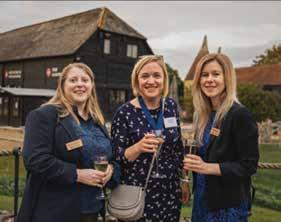
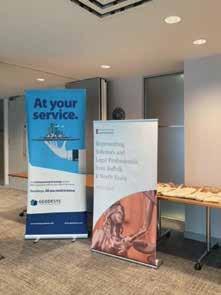


Suffolk Law Centre is now in its sixth year. Since its launch in March 2018 it has represented or given legal advice to more than 5000 clients: residents of Suffolk and North Essex who, but for the existence of the Centre, would have had no access to legal advice on matters such as housing, discrimination and family law.

Prior to the launch of the Centre, and in particular since the enactment of LASPO, the area had been one of the most severe “Legal Advice deserts” in the UK, with access to justice dependent on a person’s ability to pay. As it is, demand for advice substantially outstrips the capacity of the four qualified staff and two trainees, with the consequence that many in the area continue to lose out on their right to legal representation or advice.
At its current capacity the Centre’s running costs are around £450,000 a year, which is generated largely from donations from trusts, foundations and individuals (including a group of City based lawyers with Suffolk connections who have together funded a part time family lawyer). But if the Centre is to get closer to addressing the needs for its services another solicitor needs to be recruited and funded. Mark Pendlington

DL, the High Sheriff, has joined forces with Roger Finbow DL, a Suffolk Deputy Lieutenant who takes a particular interest in the Centre, to seek the support of law firms in Suffolk and North Essex, with the aim of encouraging them to collaborate to fund that further solicitor.
The region is a wonderful place in which to live and work, but there is clear evidence of deprivation and isolation across both rural and urban areas where poor access to public services and lack of local employment opportunities exacerbate the challenges many residents face. Access to justice is a fundamental right currently denied the less advantaged, which is why Mark and Roger hope that local firms, whose senior partners are being contacted over the next few weeks, will want to support the Centre by committing to an annual contribution.
Launched in 2002, the CON29DW has become a key report in the array of searches conducted by conveyancers and property practitioners over the past 21 years.
Owned by The Law Society, the suite of CON29 searches covers enquiries of local authorities, residential and commercial drainage and water enquiries, and coal mining enquiries.

Pre-2002 drainage and water enquiries were typically included in the local authority search, with a limited amount of information made available to prospective homeowners about the location of sewer and water mains, whether the property was connected to mains, and who was responsible for maintenance and billing.
The dedicated CON29DW provided more detailed information for conveyancers and home movers and importantly created a more structured approach to what information was provided and the format of the report.

One of the biggest challenges with data is what to include and what not to include. As more and more data becomes available the temptation is to include it in reports as a way to reduce liability; the more information provided, the less comeback there is on the report provider. We see this debate playing out across the search industry as data providers add more information and data into reports, with many now running 40, 50 and up to 60 pages long.
The key is the interpretation of this data; distilling what conveyancers and homeowners need to know quickly and concisely so as not to delay the transaction.
The drainage and water industry had its own historic moment in October 2011 when private sewers serving more than one property and lateral drains that extended beyond the property boundary became the responsibility of the water companies. Up to that point responsibility for mapping these lay with the local authority and it is well-known and acknowledged in the industry that records are incomplete.
This can cause issues in two specific cases. 1) There are occasions where the report highlights a sewer running under the property with no build-over agreement in place. These can be consented to retrospectively however in some cases where the buildings or extensions contravene building control they may need to be altered or demolished. 2) Unmapped drains will not be on public records and therefore any personal or regulated search won’t pick up the issue or have the resource to resolve the query.
In such cases the provider will infer or insure the response; a situation that can result in inaccurate information being reported.
There are plenty of examples of properties which for all intents and purposes look as though they should be connected to the mains, which are in fact serviced by a cesspit or septic tank. In a recent example we were involved in it was easy to assume the properties would be connected to the proximate drain identified under the nearby road. Multiple regulated reports incorrectly inferred as much, however, both properties were served by septic tanks.
By providing key, gold-standard upfront information on drainage and water connections and assets, the homebuyer can be empowered to either proceed or negotiate with confidence with anything that may emerge later on when ordering a CON29DW. No inferring, no insuring and most importantly, no ignoring!
The CON29DW through its various iterations since 2002 continues to provide, key information and reassurance for home movers and conveyancers. The current version answers all 23 Law Society standard enquiries covering issues as diverse as water Pressure, internal sewer flooding, method of charging, and any known pumping stations, as well as the identified sewer drainage and clean water connections.
It remains under review for relevance by The Law Society and the industry body Drainage and Water Searches Network (DWSN) who provides governance around data standards for 9 utility providers subscribed and as part of adherence to the DWSN Code of Practice, ensures that every CON29DW is covered by a minimum of £10m indemnity insurance… reassurance I would hope, that conveyancers and their clients are best served by obtaining the official CON29DW from their utility provider.
Jonny Davey Head of Product and Business Development, Geodesys
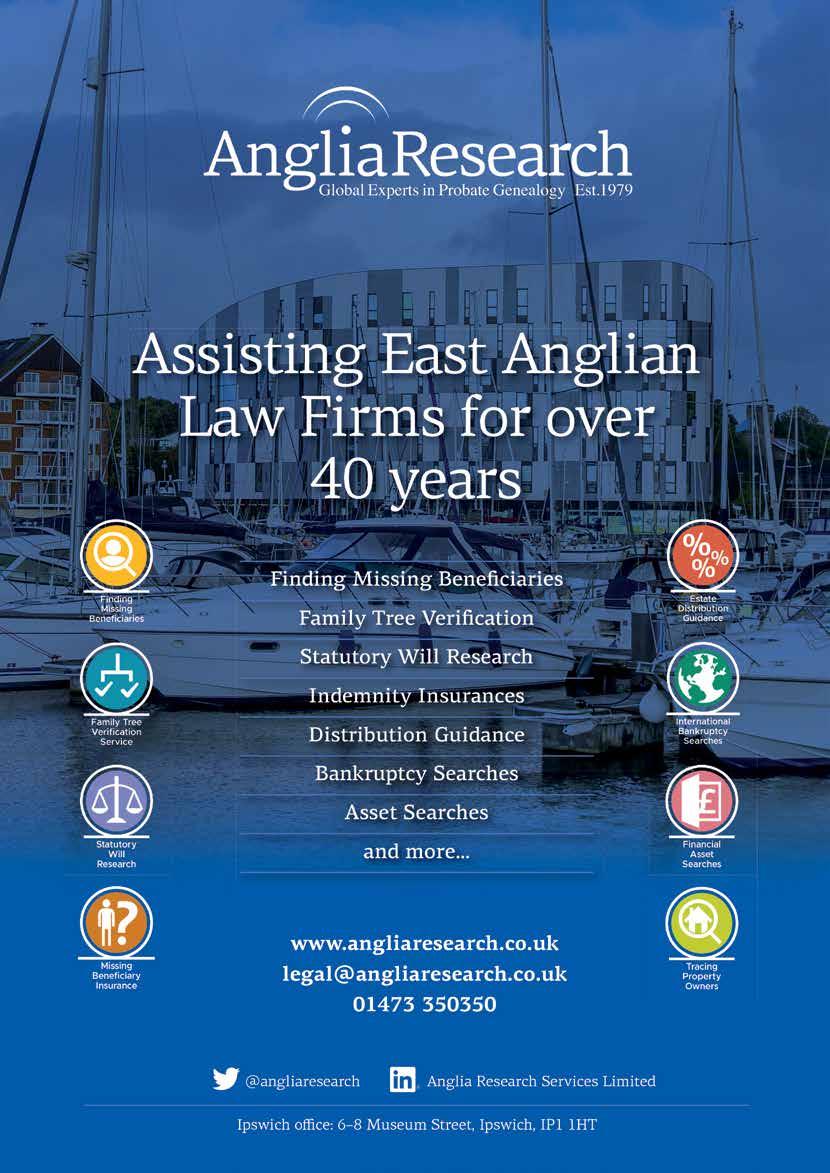
Probate Research is a largely unregulated industry with no barrier to entry. You could, if you wanted, set up your own firm tomorrow quicker than you can say “Who Do You Think You Are?”. No qualifications are required, nor any evidence of relevant training undertaken needed. Which is quite worrying when you think about it.
Contrast this with the life of a legal professional working in a law firm in England. A heavily regulated industry overseen by the Solicitors Regulation Authority. Years and years of high intensity study, followed by further years of gaining hands-on experience. All with a requirement to demonstrate ongoing competence and continuous personal development.
When viewed like this, these two worlds could not be more different, yet they can intersect regularly in the Private client law sector. The danger here is when seeking assistance from a probate genealogist, a legal professional could unknowingly instruct an unqualified novice. If there are any issues, guess who the client is going to blame?
At Anglia Research, we quickly identified the need for some form of regulation for the probate genealogy industry and have been regularly campaigning to help raise standards across the sector which has continued to grow. We are a founding member of the Association of Probate Researchers (APR), the first body to introduce independent regulation to a previously unregulated industry. Both corporate members and individual members abide by the APR’s Professional Standards and Ethics Code.

Those using the services of APR members, whether legal professional or member of the public, are safe in the knowledge that all members subscribe to our Professional Standards and Ethics Code. Through our case managers’ membership of the Professional Paralegal Register (PPR), there is an independent complaints procedure and compensatory scheme, currently the only professional body for probate researchers that do so.
We believe that this is essential for those that are serious about offering their clients reassurance and protection. For our clients, this means that in addition to the guarantees offered by our own code of conduct, they will have the reassurance of connecting with a culture in which accountability is fundamental.

The PPR acts as both a register and a regulator for professional paralegals and, following an acquisition earlier this year by CILEX, all PPR members automatically became CILEX members.
Anglia Research employs more accredited genealogists, legally qualified and independently regulated staff than any other UK probate research firm. Our accreditation is your guarantee. We have a commitment to our profession - we employ sixteen staff who hold paralegal PPR certificates and in addition have five members of staff who are Association of Genealogists and Researchers in Archives (AGRA) accredited.
In addition to this accreditation and qualifications, our Case Managers have a combined total of over 250 years of experience. We know that your best guarantee of a legally sound outcome lies in the calibre of our team. Our investment in accredited staff is your assurance. We believe it is our staff that sets us apart.
Ultimately, we are so focused on case manager training and accreditation because we know how important it is to give comfort to legal professionals using our services. Not every probate genealogy firm has taken this view and thus, not all probate genealogy firms are created equally.
So, overall, it pays to use the services of an experienced, accredited firm that has experienced, qualified employees to undertake the work needed in a professional manner. Do your due diligence. You owe it not just to yourself but also to your clients.

Legal practices whose accounting year end does not coincide with the tax year end are running out of time to choose how to deal with the HMRC’s ‘Basis Period’ reforms, says Shaun Mary of Lovewell Blake.
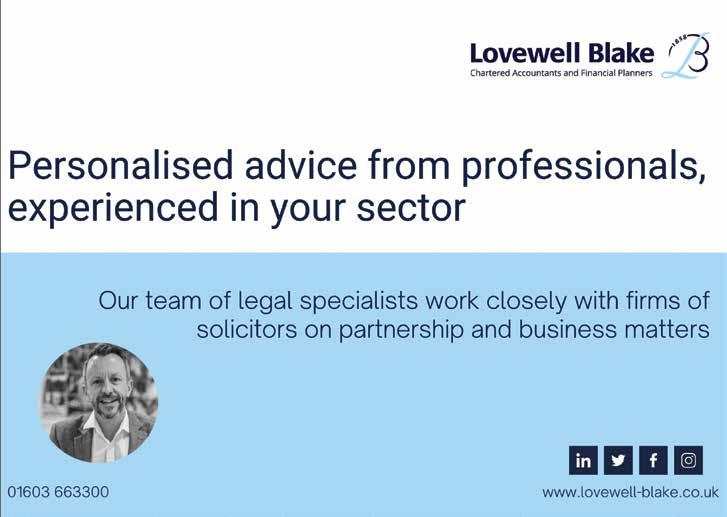
The long-delayed HMRC reforms which will see sole traders, partnerships and LLPs assessed for tax on a ‘tax year basis’ are finally due to come into effect in April 2024 – so those practices whose current accounting year end does not coincide with the tax year need to start thinking about how they are going to cope with the change sooner rather than later.
Under current rules, unincorporated businesses (including LLPs) are taxed on a ‘current year basis’. HMRC has decided to ‘simplify’ matters (for themselves, at least) so that the results of any given year are taxed in that year, regardless of the accounting date. The main driver for this is Making Tax Digital which was due to be introduced for income tax in 2024, although this has been further delayed. The reform will mean that profits will be taxed sooner, which of course has implications for cashflow.
If a practice’s accounting year end is anything other than 31st March or 5th April, the 2023/24 tax year will be a transitional year, when as much as 23 months’ worth of profit will be taxed. From 2024/25 practices will need to report the taxable profits on a tax year basis, regardless of the accounting period year end.
There are several issues that affected practices will have to consider, including:
• Profits might have to be estimated and then revisited once the accounts are finalised, causing additional administration (and costs) preparing or reviewing a later set of accounts every year.
• Overlap profit for each member/ partner needs to be researched, as it can be used to reduce personal tax payments - though in practice the relief is often relatively small.
• If profits in 2023/24 are higher than usual, this could have a compounding impact on tax bills and cashflows.
• Tax payments against additional profits brought into the charge will be automatically spread over the
five tax years beginning 2023/24; however a practice can elect not to spread them.
• Those practices maintaining tax reserves ought to ensure they are holding enough behind from profits to support future increased tax payments.
Perhaps the most obvious solution is to change the practice’s accounting year end date to coincide with the tax year end. There are special rules about doing this, so taking advice is essential – and timing of the move is also important. Practices which elect not to make this change will face having to carry out a time-consuming additional calculation ever year.
As we are already part-way through the transitional year, there is no time like the present to consider the tax and cashflow implications of the reforms. Every practice whose accounting year end is not 31st March or 5th April needs to take professional advice sooner rather than later.
By Shaun MaryIt is World Mental Health Day on 10 October: an opportunity to raise awareness and campaign for change. This year we want to highlight the responsibilities of employers to create mentally healthy workplaces.
The traditional view of health and safety in the workplace is evolving to include the risks to mental health in workplaces and a recognition that these need to actively managed. In the legal profession the focus of managing mental health at work has generally been on supporting individuals to cope with the pressures of a career in the law by building their resilience, providing education and access to external support. Although this can be beneficial, workplaces need to go wider and look at their organisational culture and working practices and consider their responsibilities to ensure that they create an environment which supports psychological safety and mental health.
Risks to mental health at work, also known as psychosocial risks, are a broad range of factors relating to the workplace and working that can cause psychological harm and can come from:
• Work management or design
• The work environment
• Workplace relationships and social interactions
The World Health Organization has identified common risks to mental health at work (Guidelines on mental health at work) and those that are relevant to the legal sector include:
• Excessive workloads
• Long, unsocial, or inflexible hours
• Lack of control over workload or job design
• Organisational culture that enables negative behaviours
• Poor workplace relationships
• Limited support from colleagues, poor management, or authoritarian supervision
• Harassment, sexual harassment or bullying
• Discrimination and exclusion
• Unclear job role and expectations
• Low reward and recognition, poor investment in career development
• Conflicting home/work demands
• Isolated or remote working
• Exposure to traumatic events
Some of these risk factors, such as exposure to traumatic events, have the potential to directly cause harm. Legal professionals working in family, criminal, immigration, or crime may develop vicarious trauma because of exposure to the trauma experienced by their clients.
However, for most people, it is a combination of exposure to psychosocial risks at work which can undermine their mental health and lead to anxiety, stress, burnout, or depression.

The legal workplace is characterised by inherent psychosocial risks - working long hours, poor work life balance, meeting the expectations of demanding clients, heavy caseloads, the pressure of deadlines and billing targets, whilst maintaining high standards of ethical and professional conduct.
This is evidenced by our Life in the Law Study published in 2021, which showed that legal professionals were at high risk of burnout associated with a high workload, working long hours and a psychologically unsafe working environment, and 20% reported being bullied, harassed, or discriminated against.
The tendency in legal workplaces is to respond to people with work related mental health conditions, once the problem has arisen; the goal should be to prevent work related mental health conditions developing in the first place. Actively managing psychosocial risks is the key to prevention. Employers should assess and identify the workplace risks to mental health, identify who may be exposed to these and which groups may be at particular risk, then take steps to

mitigate, modify or remove these risks and monitor the impact these steps have had. Managing psychosocial risks should be embedded in the organisational risk management system.
Start with a strategic review of your organisational culture. Consult with colleagues about their perspectives on this, find out if they feel they work in an environment that fosters trust, respect, and psychological safety where they can speak up about their mental health and work-related concerns. If they don’t, consider and take the steps needed to address this, in particular the role of leaders in demonstrating their commitment to a positive workplace culture and capacity for change.
Although it may seem challenging to implement measures to manage the psychosocial risks in legal workplaces, there are some practical steps that employers can take such as...
• Invest in management training so that those with responsibility for others have the skills and capacity to do this effectively
• Ensure staff have the support they need – regular 1:1 catch ups with their manager or supervisor and participation in relevant mentoring and peer support schemes
• Monitor and manage workloads and ensure staff and teams are adequately resourced
• Check in regularly with staff working remotely
• Adopt a zero-tolerance policy to bullying, harassment and discrimination
• Address poor workplace relationships or conflict
University of Suffolk Legal Advice Centre in partnership with Suffolk and North Essex Law Society
Cordially invite you to an evening with The Rt Hon. the Baroness Hale of Richmond DBE
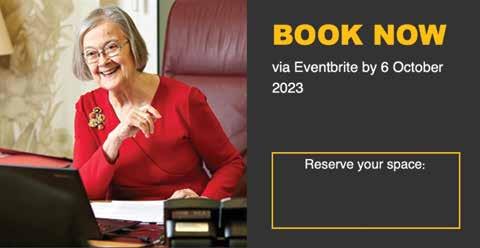
Wednesday 8 November 2023 from 5.30pm
We are delighted to welcome Lady Hale to the University of Suffolk for the inaugural Suffolk Legal Advice Centre Law Lecture entitled ‘Justice in the Supreme Court’.
At this event, Lady Hale will speak about her experiences and legal career, including some of her most memorable and impactful cases and will take questions from the audience.
• Support staff to work healthy hours, take breaks and their holiday entitlement
• Ensure transparent processes for work allocation, reward, and career progression
• For those exposed to traumatic events or materials, provide education, support and training
• Provide flexible working arrangements e.g., working from home or flexible hours to allow more time for responsibilities outside work and for activities that support mental wellbeing
Adopting a proactive approach to managing psychosocial risks supports an engaged, productive, and inclusive workplace which enables people to thrive.
LawCare is the mental wellbeing charity for the legal profession offering free, confidential, emotional support, peer support, and resources to those working in the law. LawCare promotes mental health and wellbeing best practice in legal workplaces and drives culture change in education, training and practice. If you need support call LawCare on: 0800 279 6888, email support@lawcare.org.uk or go to www.lawcare.org.uk.
Arrival
From 5.30pm | Tea and Coffee
Lady Hale — Justice in the Supreme Court 6.00pm–7.00pm | Q&A
 By Elizabeth Rimmer. CEO of LawCare
By Elizabeth Rimmer. CEO of LawCare
Wine and canapés reception 7.00pm | Sponsorship kindly arranged by the Legal Team at Sizewell C
https://www.eventbrite.co.uk/e/ justice-in-the-supreme-court-withlady-hale-tickets705312367277?aff=oddtdtcreator

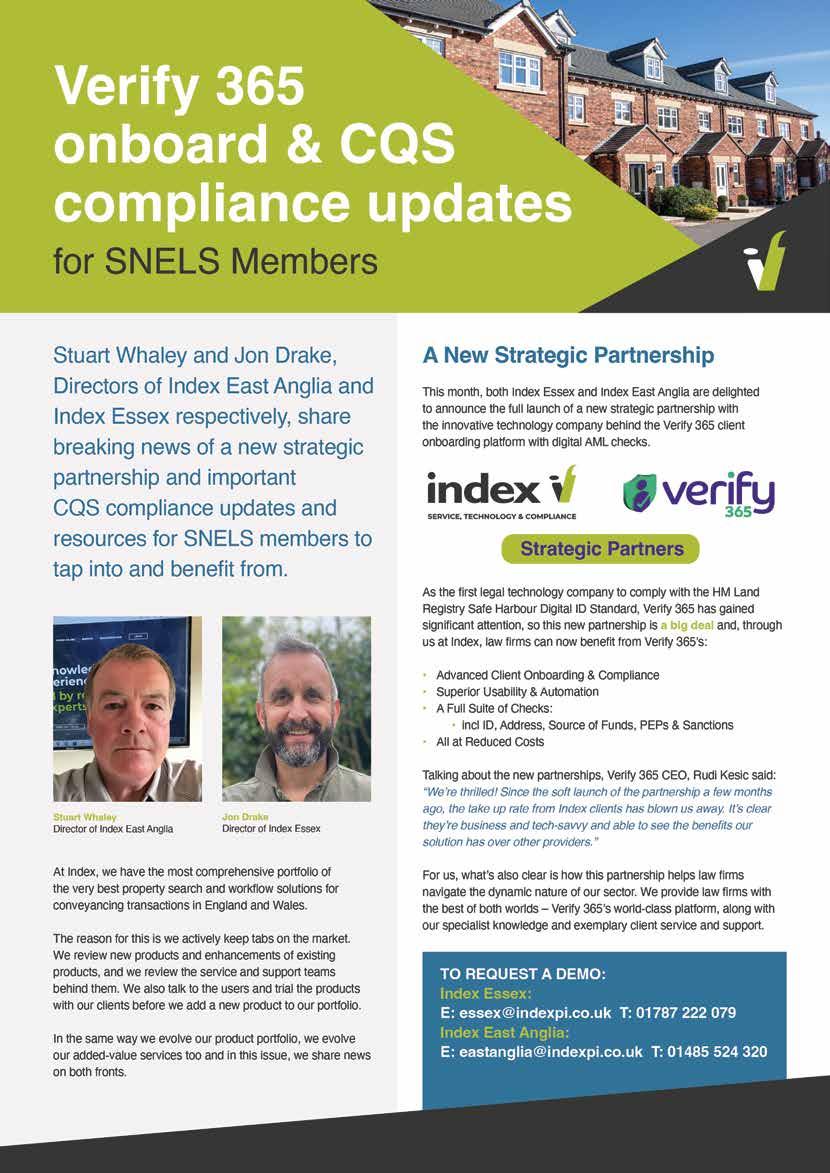



We are frequently instructed as forensic accountants in relation to family disputes. In the last year we have been employed on a number of cases involving families with interests in farming, construction, property development and investment.

Typically, families who have been shareholders or partners in family businesses for a number of generations reach a point where two sides of the family have conflicting views of future strategy. In farming businesses there can be a disagreement between those
• The historic record of shareholder or partner cash extraction from the business.
• The funding of property acquisitions.
• The commerciality of related party transactions.
• The manner in which business interests can be restructured and assets divided, or cash extracted to split the family interests.
matter being listed imminently for a court hearing. Fiona was appointed as party expert on behalf of one party, being a group of the family shareholders, to determine historic distributions and what inference could be drawn in relation to the beneficial ownership of the companies.
The Forensic Services team was instructed to undertake a financial investigation to review the bank statements, companies accounts, tax filings and accounting ledgers over a 10-year period. From the detailed investigation, the team was able to give an opinion on the distributions to family members and the implication in relation to beneficial interest in the companies. The team also gave an opinion on the beneficial interest in a number of properties, based on tracing the flow of funds. The findings were collated and submitted through an expert report and Fiona then prepared a joint statement with the other party’s expert.
family members who wish to focus on farming whilst other family members wish to diversify into alternative sources of income.
The forensic accountant may be instructed to look at a number of aspects including:
• The valuation of one or more businesses and individual’s interests, and the latent tax liabilities associated with the ownership.
In this recent case, Fiona Hotston Moore of FRP Forensic Services advised a family over a lengthy dispute regarding the ownership of several properties and a number of businesses, with the matter settling out of court.
An ongoing family dispute with regards to the beneficial ownership of approximately 40 companies and a number of properties resulted in the
Following the submission of the reports and just two days before the scheduled court hearing, the parties reached a settlement. The instructing solicitor noted, ‘can I also please add my thanks to you and the team for all your hard work on this and being so flexible with your time. The quality of your report will not have been lost on the other side and no doubt will have played a part in their desire to settle’.
approximately 40 companies and a number of properties.
Over 50 MPs have called for Inheritance Tax (IHT) to be abolished, and Government is reported to be considering including the proposal in the Conservative manifesto. With the current IHT framework offering generous incentives for legacy giving – a growing and crucial income stream for UK charities, Remember A Charity will be calling on government and policymakers to consult with the sector and to ensure that legacy income will be protected.
Lucinda Frostick, director of Remember A Charity, says: “Any change to Inheritance Tax that fails to consider the likely impact on legacy giving and just how vital this income stream is for UK charities would be of great concern to us at Remember A Charity.

“Legacy giving has become a lifeline for thousands of charities and community-based organisations, building resilience and long-term income that has proved crucial in the current economic climate.
“As a representative body for 200 charities that rely on legacy income, we will be urging government and policymakers to consult with us and the wider sector to explore the likely impact on charities of proposed changes, ensuing that legacy income will be protected.”
What are the IHT benefits?
Charitable gifts in Wills are currently exempt from Inheritance Tax (IHT), charged at 40% above the IHT threshold. What’s more, those that donate 10% or more of their estate to charity benefit from a discounted IHT rate of 36%. This can make a considerable reduction in the amount of tax paid per estate, enabling people to give generously, while also supporting their family and friends.
What is the impact of the IHT incentives on legacy giving?
Legacy giving has grown substantially – with consumer polling indicating growth of over 40% in the past decade, and while it’s impossible to state with certainty how much of that is driven by the IHT incentives, the tax framework can be powerful influence on people’s capacity and propensity
to give. Crucially, the IHT incentive creates the opportunity and impetus for solicitors, professional Will-writers and other legal advisers to raise legacy giving with clients. Research from the Behavioural Insights Team indicates that even the simplest of charitable reference by solicitors during the Will-writing process doubles the chances that clients will leave a gift. Having tracked charitable estate trends reported by solicitors and Will-writers since 2014, we can see a 50% increase (from 16%-24%) in the proportion of professionally written Wills that include a charitable donation.
Key facts and figures
IHT is a minority tax impacting fewer than 4% of deaths (27,000 in 2020/21), and yet,
• Estates paying IHT account for around one quarter of all charitable estates (9,680) and half of legacy income donated (£1.8 billion in 2020/21)1
• Over one third (36%) of IHT estates include a charitable gift, with one in four of those charitable estates (2,590 in 2020/21) including donations of 10% or more, qualifying for the reduced IHT rate1
• Legacy giving is around six times more prevalent for IHT estates – 36%1 vs 6%2

Gifts in Wills now raise almost £3.9 billion3 for good causes annually, funding vital charitable services for charities and community-based organisations across the country. Legacy giving is an integral and thriving part of the UK’s philanthropic landscape.
Remember A Charity is working with the Chartered Institute of Fundraising and fellow sector bodies to build up a body of evidence on the importance of the IHT incentive and to formulate a collaborative response to Government.
For more information see www.rememberacharity.org.uk/IHT


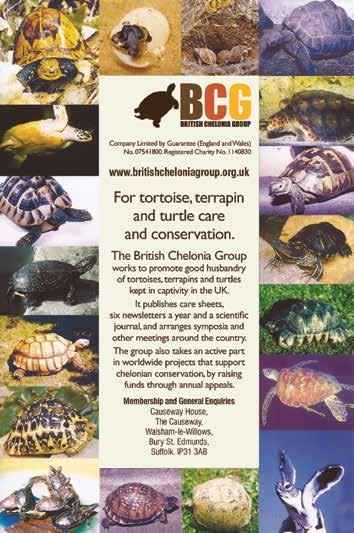



TUESDAY 12 SEPTEMBER 2023: This year’s Remember A Charity Week (11-17 September) charities and the legal sector are coming together to open up conversation about gifts in Wills. A new ‘Be Remembered’ campaign has launched online (https://www.rememberacharity.org.uk /be-remembered/), inspiring the public to consider how they wish to be remembered and how they can shape their legacy by leaving a gift to charity in their Will.

This news comes with the release of a consumer poll, which reveals that three in five (61%) UK adults and almost half (46%) of the over 40s have not yet written a Will.
Attitudes towards leaving a gift to charity in your Will are positive. Two fifths (40%) of UK adults say they would be happy to leave a gift to charity after taking care of loved ones and even more (46%) say they would feel proud if a loved one left a donation to charity in their Will. Just over three fifths (62%) recognise that you don’t need to be wealthy to leave a gift to charity in your Will and acknowledge that even a small gift left to charity can make a difference and help to fund vital work.
Remember A Charity Week brings together around 200 member charities and the campaign’s network of over 850 solicitor firms and Will-writers, legal partners and government to encourage everyone to consider leaving a gift to their favourite charities in their Will, alongside gifts for family and friends. The consortium also runs a free Campaign Supporter scheme for legal firms, (https://www.rememberacharity.org.uk/about-us/ for-solicitors-will-writers/).
Lucinda Frostick, Director of Remember A Charity, says:
“Remember A Charity Week is a fantastic opportunity to celebrate the phenomenal impact of gifts in Wills on charities and charitable services across the UK.
Thanks to the support of solicitor firms and Willwriters, along with a wide network of legal partners, one in four professionally-written Wills now include a charitable donation1. That income has never been more valued or more needed.”
( https://www.rememberacharity.org.uk/about-us/latest-news/ one-in-four-professionally-written-wills-now-include-a-charitable-gift/).
“This week, we’re hoping to encourage more firms to get involved and use this platform to spark conversation about Will-writing more widely, encouraging clients to consider how they wish to be remembered and to inspire even more people to consider leaving a gift in their Will.”
To find out more or take part in Remember A Charity Week (11-17 September 2023), visit www.rememberacharity.org.uk


The temptation to write your own CV these days is often boosted by limitless free templates online, promising star-spangled glitzy formats, or you may have dipped your fingers into ChatGPT to see what AI can discover about you.
Before you hit the button on any of these, consider these top 5 tips to writing a good CV yourself:

Consider your audience, write it for a partner in another law firm. They want to know what you can do from day one for their team.
Remember it is a marketing document, you need it to present the positives and be accurate. You don’t have to include any horror stories for completeness!
Mention all those ‘obvious’ things that you do, the reader doesn’t know your work load your clients or what you do for them.
Include those ‘other’ responsibilities, marketing, business development, drafting for websites, social media presence, management responsibilities, supervision or formal/informal internal mentoring.
Keep it snappy! 2 pages is ideal for a junior CV, a senior CV can be longer but 5 pages is definitely long enough.
I read lots of CV’s every day and overall, what strikes me the most are those that show experiences, skills or interests that make the CV stand out as totally unique to the candidate.
These unique points are often extracted due to the encouragement of a third-party assisting with writing the CV.
Our resident CV writer, Sarah Siddiqui, has a proven track record of collaborating with law students and seasoned lawyers to refine their CVs at various career stages.
With a background in both law practice and CV writing, Sarah is uniquely qualified to craft compelling legal CVs and law firm cover letters that capture the attention. Sarah can glean talents and experiences that can really make a CV stand out and often those exceptional abilities are the ones that would be left out by the candidate.
Sarah consistently stays updated on industry trends, legal hiring practices, and CV formatting which ensures the CV’s she produces are up-to-date and current.

Whether you are a law student looking for your first legal job or an experienced lawyer seeking a new opportunity, Sarah is well placed to get your job search off to the best start.
If you would like to have a chat about Sarah producing your CV as a paid for service please do get in touch. If you’d like me to look at your CV just for some direction or comment then equally happy to have that conversation with no commitment and charge.
Written by Clara Rose LL.B LL.M Clara Rose Consultancy www.clararoseconsultancy.co.uk 020 3286 7884

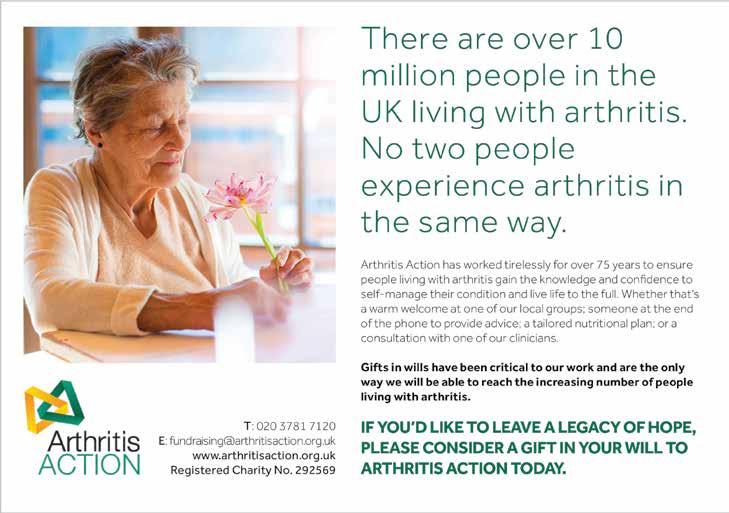
Law students, trainee solicitors and junior lawyers are invited to enter the annual Graham Turnbull essay competition. This year’s essay title is:’ ‘What are the human rights implications of the failure of a state to take action to prevent global temperature rises which threaten the health or lives of their citizens?’
The deadline for entries is 5pm on Friday 20 October 2023.
Prizes
The winner will receive £500 from the Graham Turnbull Memorial Fund. The prize- giving event will take place at the offices of Travers Smith Solicitors at 10 Snow Hill, London EC1A 2AL. The event will be a hybrid event which will be both in person and on line on the evening of 30 November 2023. Tickets can be obtained here. The winner may give a short speech.
The winner and runner up will be announced and copies of their essays
will be handed out on the night. Attendance at the prize-giving is free and open to all.
About the Graham Turnbull Competition
The competition is named after English solicitor Graham Turnbull who did much to promote respect for human rights. Graham was killed in February 1997, aged 37, while working as a human rights monitor on the United Nations Human Rights Mission in Rwanda. The Society is proud to honour Graham’s commitment to human rights through this competition, which aims to encourage awareness and knowledge of international human rights issues and remedies among young lawyers.
Entering the competition
• The competition is open to all law students, trainee solicitors, pupil barristers and all solicitors and barristers, within three years of admission/call at the closing date.
• Essays must reach the tfisher@fjg.co.uk by 18:00 on Friday 20 October 2023.

• Entries should be a maximum of 2,000 words, including footnotes.
• Entries will be rejected if they do not address the subject of the title, or exceed 2,000 words.
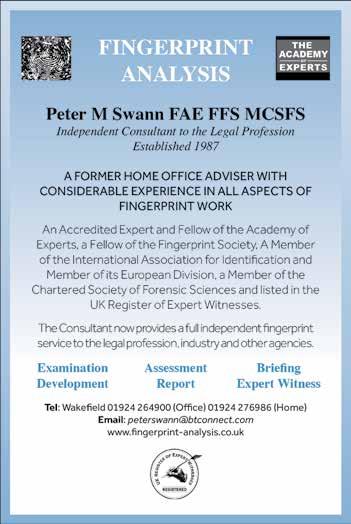
• Proof of eligibility must be included with your essay. Read the attached full rules before submitting your entry.
• The winning essay will be chosen by a panel of distinguished judges. The judges’ decision will be final and no correspondence will be entered into.
Send your essay to: Mr Tony Fisher Chair of Trustees of the Graham Turnbull Memorial Fund at tfisher@fjg.co.uk


